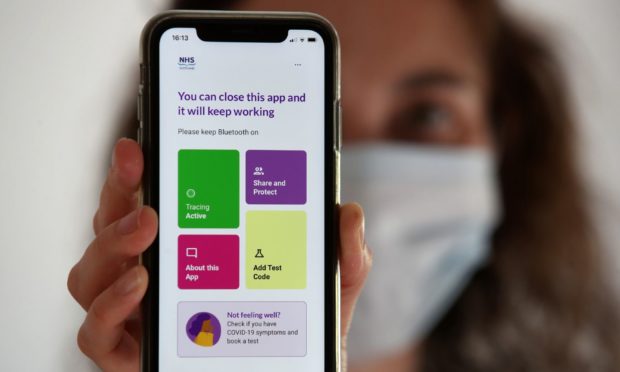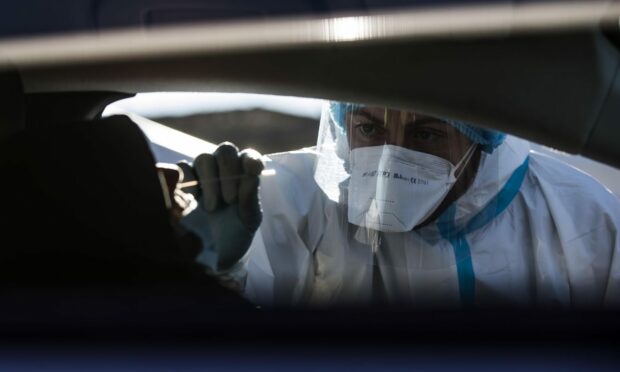Coronavirus testing and tracing systems are working “much better” in Scotland than England despite capacity concerns, according to an expert.
Allan Wilson, president of the Institute of Biomedical Science, said the main problem was that people were less compliant with the rules because they feel more “relaxed” about the consequences of the virus, despite facing a “collective risk” from new variants.
He was speaking after fears were raised that the Test and Protect system was “reaching breaking point” in Scotland.
The proportion of cases closed within 24 hours halved from a peak of 80% in early April to 40% in June, amid a sharp rise in transmission.
Speaking to the BBC’s Good Morning Scotland radio programme, Professor Wilson said the trend was an “inevitable consequence” of relaxing the restrictions, and “not really surprising”.

He said: “I think from a Scottish perspective, I think we’ve done much better than south of the border when it comes to Test and Protect.
“We built Test and Protect in this country based on local contacts, local public health knowledge, and that knowledge of the local population.
“So my impression of them is more of a compliance thing, plus the scale. It takes time to do this.
“It takes some time to scale up the operation when the infection rates are rising so much. I don’t think that will take terribly long.
“But my impression is that it’s more of a compliance issue rather than actually a capacity issue with Test and Protect.”
At a Covid briefing on Tuesday, Chief Medical Officer Gregor Smith praised the work of Test and Protect staff, after revealing that more were receiving abuse when contacting members of the public.
Professor Wilson suggested there was evidence that many people were also no longer self- isolating after being informed that a contact had tested positive.
“For this to work, it needs individuals to actually respond, it needs them to actually respond to that ping on their phone when they have been told they have been in contact with someone who is Covid positive, and they need people to self-isolate under the guidelines,” he said.
For this to work, it needs individuals to actually respond, it needs them to actually respond to that ping on their phone when they have been told they have been in contact with someone who is Covid positive, and they need people to self-isolate under the guidelines.”
“I think there is some anecdotal evidence to say that people are not as compliant as they were in the earlier stages of this pandemic.
“I think people need to realise that we need to drive this infection down, and we need to comply with the restrictions.”
He added: “I think there is an element now that people feel protected because they’ve been vaccinated.
“We’ve obviously been tremendously successful in driving down hospitalisation and deaths in this virus, and therefore people don’t feel there’s the same risk to them from catching the virus.
“I think the issue we have here, however, is the infection rate is very high at the moment, and because there’s very low hospitalisation and death rates, people are more relaxed about the situation.
“Obviously this virus thrives on transmission, and the risk we have is if infection rates rise, and transmission rates rise, the potential emergence of a new variant.
“So although people can feel relaxed about the personal consequences of this virus, now there is more of a collective risk here about the potential of a new variant arising, if transmission rates and infection rates continue to rise.”
